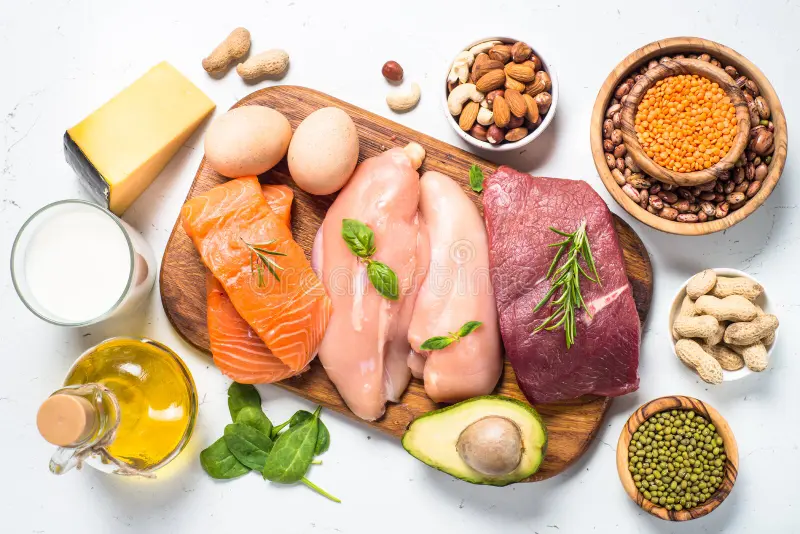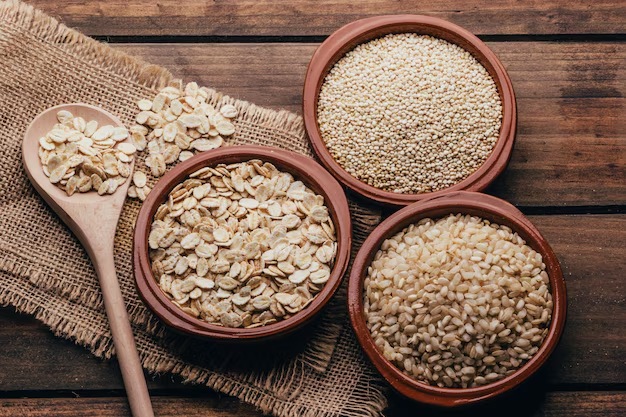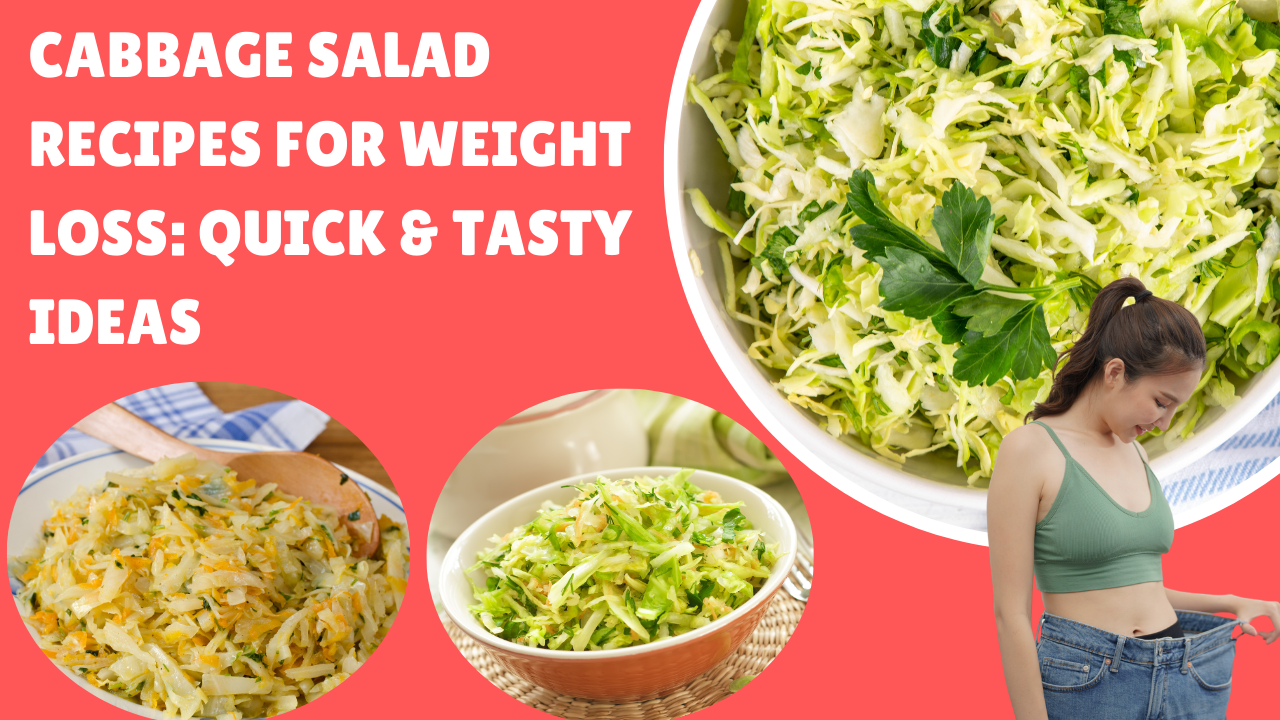Metabolism Booster refers to any factor, food, or habit that helps increase the rate at which your body burns calories and uses energy. Many foods, drinks, and activities can naturally support a faster metabolism. These metabolism-boosting factors work by encouraging the body to burn more calories, use fat as fuel, and even improve muscle tone.
Metabolism is the process by which your body converts food into energy to fuel daily activities. It involves a series of complex chemical reactions that break down nutrients, creating energy for your cells to perform essential functions like breathing, digestion, and circulation. A healthy metabolism is key to maintaining overall health, and factors such as genetics, age, and lifestyle can influence how efficiently it works.
Including metabolism boosters into your daily routine can help support weight management, enhance energy levels, and improve overall health. From certain foods like green tea and protein-rich options to regular physical activity, small changes can make a big difference. Understanding how your metabolism functions and how to support it can lead to more effective health goals and lasting energy.
Understanding Metabolism

What Is Metabolism ?
Metabolism is how your body changes the food and drinks you eat into energy. It involves a series of chemical reactions that help keep your body working properly. These reactions happen in every cell and are always active, even when you’re resting.
This process helps your body grow, repair itself, and stay balanced. It gives your cells the energy they need to function and react to their surroundings. Without metabolism, your body wouldn’t be able to survive, as it supports all the basic functions that keep you alive and healthy every day.
Metabolism is often broken down into two key components:
Basal Metabolic Rate (BMR): This refers to the amount of energy, measured in calories, that your body requires to perform essential life-sustaining functions while at rest. These include processes like breathing, maintaining blood circulation, and controlling body temperature.
Total Daily Energy Expenditure (TDEE): This is the total number of calories your body uses in a day. It includes your BMR along with the additional energy burned through physical activities, the digestion of food, and all other daily movements or functions performed by the body.
Why Is Metabolism Important ?
Metabolism isn’t just about weight. It’s the engine behind every bodily function, including:
Energy Levels: When your metabolism is slow or underactive, it can result in ongoing tiredness and a noticeable lack of energy throughout the day.
Weight Management: A faster or more active metabolic rate allows your body to burn calories more effectively, making it easier to manage body weight.
Hormonal Balance: Metabolic processes play an important role in regulating hormones, which can influence various functions such as mood stability, appetite, and stress response.
Cell Repair and Immunity: A well-functioning metabolism helps support the body’s ability to repair damaged cells and strengthens the immune system, aiding in faster recovery from illnesses or injuries.
Factors That Influence Metabolism
Several internal and external factors affect how quickly or slowly your metabolism works:
Genetics: Your genetic makeup has a significant influence on your Basal Metabolic Rate (BMR), as it helps determine how efficiently your body uses energy.
Age: As you grow older, your metabolism typically becomes slower, which can affect how your body processes calories and maintains weight.
Gender: Males generally have a higher BMR compared to females, largely because they tend to have a greater amount of lean muscle mass.
Muscle Mass: Having more muscle tissue increases your resting calorie burn, since muscle requires more energy to maintain than body fat.
Physical Activity: Regular exercise, particularly resistance or strength training, can enhance your metabolism by increasing muscle and energy use.
Diet: The type of food you consume and the frequency of your meals can both impact how efficiently your metabolism functions.
Hydration and Sleep: Staying properly hydrated and getting enough quality sleep are both critical for supporting healthy metabolic activity and overall energy balance.
Top 10 Metabolism-Boosting Foods
Protein-Rich Foods (Eggs, Chicken, Lentils)

Proteins are known to be effective metabolism boosters because they require more energy to digest than fats or carbohydrates. This energy use is called the Thermic Effect of Food (TEF), which is the number of calories your body burns while processing food. Protein has the highest TEF of all the macronutrients, meaning your body works harder and uses more energy to break it down.
About 20% to 30% of the calories from protein are burned during digestion, while only 5% to 10% of calories from carbohydrates and 0% to 3% from fats are used this way. Because of this, adding more protein-rich foods to your diet can naturally help boost your metabolism. It’s a simple and healthy way to support your body’s calorie-burning process throughout the day.
Eating adequate protein helps:
Build and maintain lean muscle mass.
Reduce cravings by increasing satiety.
Burn more calories post-meal.
Best options: Eggs, lean meats like chicken and turkey, legumes like lentils and chickpeas, and dairy products like Greek yogurt.
Chili Peppers
If you’ve ever started to sweat or feel warm after eating spicy food, you’ve likely experienced the effects of capsaicin. Capsaicin is the natural compound found in chili peppers that gives them their hot and spicy flavor. It triggers a warming sensation in the body, often making you feel like your temperature is rising.
This compound does more than just add heat to your food—it also acts as a natural metabolism booster. Capsaicin has been shown to increase the number of calories your body burns, even after a meal. It may also help reduce appetite, making it easier to manage your food intake throughout the day.
Including spicy foods with capsaicin in your meals may give your metabolism a small but helpful boost. While it’s not a magic fix, it can support your overall weight and energy goals.
Increase calorie burning by raising body temperature.
Reduce appetite, helping control food intake.
Boost fat oxidation, especially belly fat.
Bonus tip: Add fresh chili, cayenne pepper, or hot sauce to meals for a flavorful metabolic spike.
Green Tea and Oolong Tea

Green tea and oolong tea are both rich in catechins, which are natural antioxidants that support various functions in the body. These teas also contain a moderate amount of caffeine, which helps stimulate the nervous system and increase alertness. When combined, these two compounds can have a noticeable effect on how your body uses energy.
Catechins and caffeine work together to support fat oxidation, which means they help the body break down fat and use it for energy. This process may lead to more calories being burned, even when you’re not exercising. Because of this effect, green and oolong teas are often viewed as natural metabolism boosters.
Drinking these teas regularly can provide gentle and steady support to your metabolism. While the changes may be small, they can be a helpful part of a healthy routine.
Enhance fat oxidation during exercise.
Promote thermogenesis (heat production) that burns calories.
Improve insulin sensitivity and energy expenditure.
Studies suggest that drinking 2–4 cups per day can increase metabolism by 4–10%.
Coffee
Caffeine is one of the most researched natural stimulants and is commonly found in coffee, tea, and certain energy drinks. It works by stimulating the central nervous system, helping you feel more awake and alert. A regular cup of coffee can do more than just boost your energy levels in the morning.
Coffee is often seen as a natural metabolism booster. Caffeine can increase the rate at which your body burns calories, even when you’re at rest. It also helps promote fat breakdown, especially during physical activity, by encouraging your body to use fat as a source of fuel.
Including moderate amounts of coffee in your daily routine may help support your metabolism in a simple way. While it won’t replace healthy habits, it can be part of a balanced plan to improve energy and calorie burning.
Temporarily boost metabolic rate by 3–11%.
Increase physical performance by stimulating adrenaline.
Help mobilize fatty acids from fat tissues for energy.
Just remember: moderation is key. Too much caffeine can disrupt sleep, which negatively affects metabolism.
Whole Grains (Oats, Brown Rice, Quinoa)

Whole grains are packed with complex carbohydrates and fiber, which provide a variety of health benefits. Unlike refined grains, whole grains require more effort from your digestive system to break down and process. This increased effort can lead to a rise in the Thermic Effect of Food (TEF), which is the energy your body expends to digest food.
As a result, consuming whole grains can act as a natural metabolism booster. The extra energy required for digestion helps burn more calories, which can support weight management and overall energy expenditure. This effect is especially beneficial when incorporated into a balanced diet.
By including whole grains like oats, brown rice, and quinoa in your meals, you can boost your metabolism naturally. Their high fiber content not only aids digestion but also helps regulate blood sugar and promotes long-lasting fullness, making them a great choice for overall health.
Benefits include:
Longer digestion time = prolonged energy release.
Better blood sugar control.
Support for healthy gut bacteria, which are increasingly linked to metabolic health.
Best picks: Steel-cut oats, brown rice, barley, bulgur, and quinoa.
Water
Although water isn’t technically classified as a “food,” it plays a crucial role in every metabolic process within the body. Every cell, tissue, and organ requires water to function properly. Without adequate hydration, your body struggles to perform essential functions efficiently.
Mild dehydration can have a significant impact on your metabolism. Even a slight decrease in water levels can slow down the rate at which your body burns calories and processes nutrients. This means that staying hydrated is important for maintaining an optimal metabolic rate.
Drinking enough water each day can act as a natural metabolism booster. It helps ensure that all metabolic processes run smoothly, from digesting food to burning fat. For best results, aim to stay well-hydrated throughout the day to support overall energy and metabolic function.
Drinking water can:
Boost metabolism by 10–30% for up to an hour.
Aid in fat metabolism (lipolysis).
Reduce calorie intake when consumed before meals.
Cold water may offer a slight edge by forcing the body to expend energy to heat it to body temperature.
Lentils and Legumes

Legumes such as lentils, chickpeas, and black beans are packed with essential nutrients like protein, fiber, and resistant starch. These components are not only beneficial for overall health but also play a key role in boosting metabolism. The body works harder to break down the protein and fiber in legumes, which can increase the number of calories burned during digestion.
Because of their high fiber content, legumes help regulate digestion and promote feelings of fullness, preventing overeating. Resistant starch found in these foods also supports healthy gut bacteria, further contributing to improved digestion and metabolic function.
Including legumes into your diet can be an effective way to enhance your metabolism naturally. Their combination of protein, fiber, and resistant starch makes them powerful metabolism boosters, helping you burn more calories and support long-term energy levels.
They:
Increase calorie burn through TEF.
Stabilize blood sugar and insulin levels.
Feed beneficial gut bacteria that produce metabolism-enhancing short-chain fatty acids.
Adding just one serving of legumes per day can contribute significantly to metabolic health.
Coconut Oil
Coconut oil is a unique source of fat, as it contains medium-chain triglycerides (MCTs). Unlike long-chain fats found in most oils, MCTs are metabolized differently by the body. Instead of being stored, MCTs are quickly absorbed and transported directly to the liver.
Once in the liver, MCTs are either used for immediate energy or converted into ketones. These ketones can then be used as an alternative fuel source by the brain and body, promoting fat burning and providing a steady energy supply. This makes coconut oil a powerful metabolism booster.
Including coconut oil in your diet can support your metabolism by providing your body with a fast, efficient source of energy. As MCTs are processed quickly, they can help increase calorie burning and enhance overall metabolic function.
Studies show that MCTs:
Increase energy expenditure compared to other fats.
Promote satiety and reduce overall calorie intake.
Swap traditional cooking oils with coconut oil in moderation to reap the metabolic rewards.
Seaweed

Seaweed is a lesser-known but highly effective metabolism booster. It is rich in iodine, an essential nutrient that plays a vital role in thyroid function. The thyroid gland helps regulate metabolism, controlling how efficiently your body burns calories and uses energy.
When there is an iodine deficiency, the thyroid’s ability to regulate metabolism can be compromised, leading to symptoms like weight gain and fatigue. This makes iodine an important nutrient for maintaining a healthy metabolic rate.
Including seaweed in your diet can help ensure you’re getting enough iodine to support thyroid health. By doing so, you can enhance your metabolism, improve energy levels, and promote better weight management.
Types like kelp, nori, and wakame also contain fucoxanthin—a pigment that may further promote fat burning.
Caution: Don’t overconsume. Too much iodine can have the opposite effect.
Berries (Blueberries, Raspberries, Strawberries)
Berries are packed with powerful antioxidants, particularly anthocyanins, which help reduce inflammation and promote overall metabolic health. These antioxidants play a key role in protecting the body from oxidative stress, which can slow down metabolism and increase the risk of chronic diseases.
In addition to antioxidants, berries are high in fiber, which has its own benefits for metabolism. Fiber helps regulate digestion and promotes a feeling of fullness, which can prevent overeating and support healthy weight management. It also helps control blood sugar levels, preventing spikes that can affect energy and metabolism.
Including berries in your diet is an easy way to boost your metabolism naturally. Their combination of antioxidants and fiber makes them an effective metabolism booster, supporting both metabolic function and overall health.
Slows digestion.
Improves insulin sensitivity.
Supports gut health and reduces cravings.
Plus, their natural sweetness makes them a healthy, low-calorie treat.
Conclusion

Optimizing your metabolism is one of the most effective ways to enhance your energy levels, improve weight management, and support overall health. While genetics and age play a role, the good news is that your daily choices—especially the foods you eat—can act as a powerful metabolism booster.
From protein-rich meals to hydrating with water and sipping on green tea, small adjustments in your diet can create significant, lasting changes in how efficiently your body burns calories and processes nutrients. Incorporating natural metabolism boosters like chili peppers, legumes, and coconut oil helps you stay fuller longer and encourages your body to work harder during digestion and energy conversion.
Ultimately, a healthy metabolism isn’t about extreme diets or quick fixes. It’s about consistent habits, mindful eating, and choosing nutrient-dense foods that fuel your internal engine. Start small, stay consistent, and let each meal bring you one step closer to your metabolic best.
FAQs
1. What is a metabolism booster ?
A metabolism booster is any food, drink, or habit that increases the rate at which your body burns calories and converts food into energy. These can include protein-rich foods, caffeine, spicy ingredients, and regular physical activity.
2. Can certain foods really boost metabolism ?
Yes, certain foods like chili peppers, green tea, and high-protein items increase the thermic effect of food (TEF), which means your body uses more energy to digest them, temporarily raising your metabolic rate.
3. How often should I eat metabolism-boosting foods ?
Incorporating metabolism-boosting foods into each meal or snack throughout the day can help maintain a steady metabolic rate and support sustained energy levels.
4. Is water a metabolism booster ?
Absolutely. Drinking enough water supports all metabolic processes, and cold water can even temporarily raise metabolism as your body uses energy to heat it to body temperature.
5. Do metabolism boosters help with weight loss ?
Yes, when combined with a balanced diet and regular exercise, metabolism boosters can enhance calorie burning and support weight loss by improving overall energy efficiency and appetite control.
